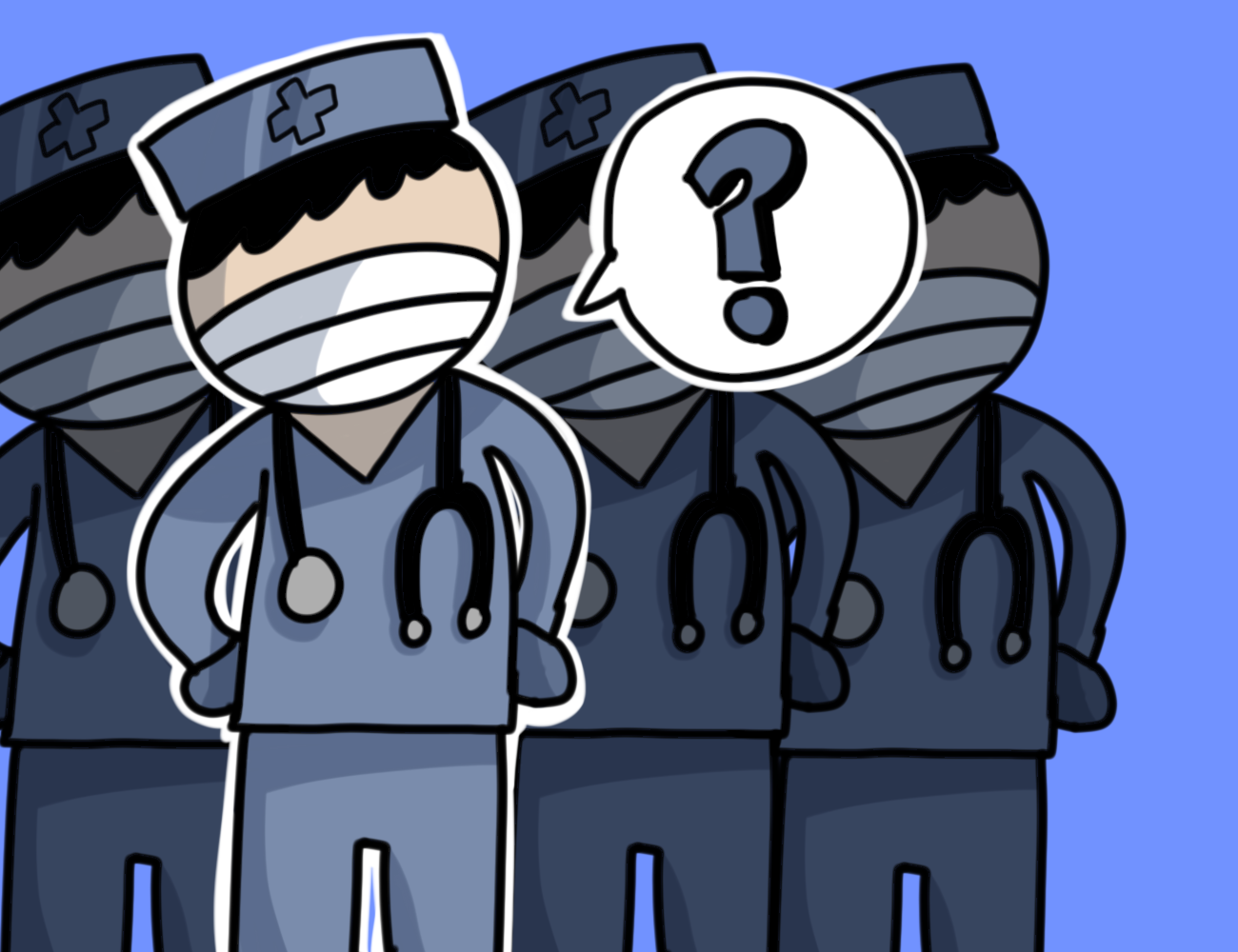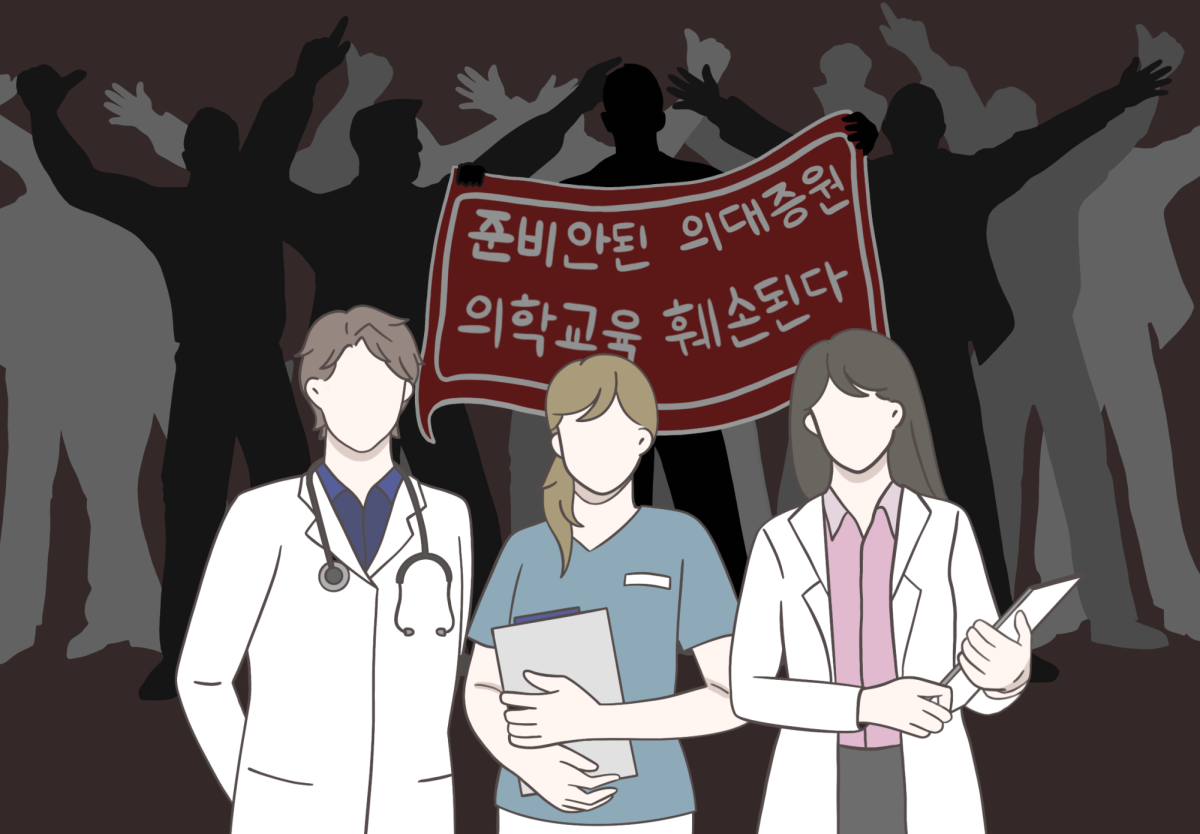As a part of the national healthcare system reform, the Korean government plans to increase the medical school admission quota starting in 2025 — an additional 1500 compared to previous years. Established in response to a perceived shortage of doctors, they aspire to expand the health-related workforce to 10,000 by 2035.
This change instigated tensions among government officials, doctors, and medical students. Most practitioners firmly believe that the modification will demean the quality of medical education and inefficiently overload the concentration of doctors in Seoul.
Since the announcement of the policy in early 2024, medical practitioners and prospective doctors alike have protested against the government’s decision. Some even stepped down from their coveted position as medical school students or doctors. As the conflict between the doctors and the government escalated, university hospitals around Korea resorted to shutting down once a week. Despite this opposition, the government remains resolute.
Dr. K, a private urologist from Daegu, emphasizes his opposition to the government’s unilateral decision and stresses the impracticality of the solution. “Because the current medical education system, unlike other majors, requires face-to-face application-based classes, a suitable environment for such is the priority. Thus, with the increase of medical students, the quality of education will inevitably fall, considering the projected overload of students in the field. The drastic increase in the student number will most certainly lead to an increase of inexperienced doctors,” Dr. K said.
In agreement, otorhinolaryngologist Dr. C highlighted the logical fallacy of the cart before the horse. “The government should reform the medical education system first to make it more compatible with a larger student body before increasing the admissions quota,” he said.
“Instead of actually solving the problem, I think that the government is pouring water into a bottomless pit. Alternatively, shouldn’t we try to figure out why the pit is bottomless?,” Dr. K added.

Dr. C asserted that the government neglects the root of the shortage issue. An imbalance of medical doctors in certain fields currently plagues Korea with the inability to treat patients with specific symptoms. Numerous scholars identify the major problem as the profit difference in various specialties. The next generation tends to avoid unprofitable and tedious jobs which floods some departments but dries out others. For example, specialties such as plastic surgery flourish while pediatrics, though critical for public health, dwindles.
Dr. K said, “I think that they could enforce policies that guarantee income for the particular crucial departments that are less popular. If we simply increase the number of doctors, the departments that medical students stay away from will continue to be avoided, and subsequently, cases of severe diseases will continue to be transferred to Seoul and fail to resolve the lack of doctors in rural areas.”
Dr. C also pointed out the difference in population density between urban and rural areas. Minor cities lack a health-care workforce whereas professionals tightly pack up the capital. He elaborates that numerous civilians in rural areas find the need to travel to Seoul to receive adequate treatment for severe illnesses. The lack of incentives and resources for other cities decreases both quality and quantity.
Physicians in rural areas also complain about the lack of exposure to diverse diseases which hampers a consistent growth of skill and experience. Dr. C said, “With the vast majority of patients traveling to Seoul for treatment, there are meager opportunities in rural areas for doctors to handle diverse medicinal cases.”
As the heated debate grows exponentially, new opinions arise as they challenge the government, ethics, and personal beliefs. With a determined outlook, Dr. K said, “Let’s solve this problem with better support for research nationwide instead of exhausting our resources and efforts to realize a fruitless plan.”






















































Minju • May 9, 2024 at 7:30 pm
I also think that it is a big problem that we have less doctors. For the citizens, the doctors should come back as fast as they can.
GG • May 9, 2024 at 7:27 pm
There are a lot of issues because the less of doctors. I think that the doctors need to come back faster. The citizens are going to suffer if there are less doctors.(my opinion )